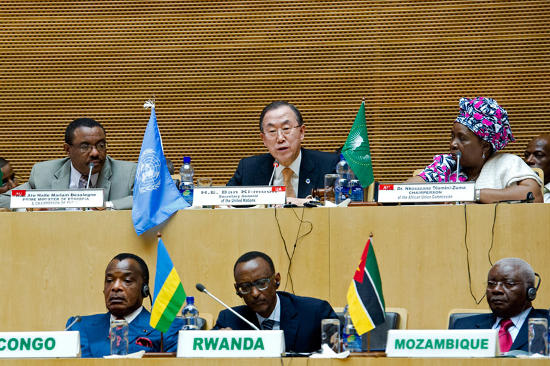A Pepper Grinder Post
Mixed Up
Time for a pop quiz. Why have the League of Nations, Esperanto, and the United Nations all failed to live up to expectations? I imagine you could ask historians this question and get a variety of answers. I believe the answer to this question lies in an unusual passage in Genesis.
First, a little historical background. The League of Nations was founded in the wake of World War I. Coming after a war which had devastated Europe and horrified the world by showing how much carnage could be created by modern warfare, its main purpose was to try to prevent future wars. The League itself did not have the power to punish nations that went against its decrees, but instead relied on member nations to supply any economic sanctions or armed force necessary to bring an errant nation into line. There were some signs of problems right from the start, as the U.S. Congress refused to allow the country to join the League, in spite of the U.S. President, Woodrow Wilson, being one of it's strongest proponents.
However, many nations did join the League, and it did some good work. In addition to resolving or helping resolve a number of territorial disputes, the League helped curb traffic in opium and sexual slavery, and worked to help refugees.
The ultimate problem with the League was seen when Japan invaded Manchuria (part of China). When the League decided against Japan and said that it must withdraw its troops from Manchuria, Japan simply left the League and kept its troops in place. In similar fashion, other nations who did not wish to be pestered by the League, such as Italy, Germany, and Spain, left. The League's failure to prevent World War II was the final nail in the coffin.
Esperanto was developed in the late 1800's by physician L. L. Zamenof. It was intended to be an international secondary language which would be easy to learn, and would enable people world-wide to have a way to communicate that was not tied to any particular nation or culture. Reading the Wikipedia article on Esperanto, I was impressed to read that up to two million people in the world speak the language (though since the person who made this estimate died in 2003, it may no longer be accurate). It had been so long since I heard of Esperanto, I assumed it had died out completely. On the other hand, the (probably optimistic) figure of two million is still less than three one-hundredths of one percent of the world's population. It is quite clear that Esperanto has not come close to the goal of promoting world peace by providing a language which most people speak.
 Then there is the United Nations. You may not have heard of Esperanto or the League of Nations, but I'd be surprised if most people hadn't heard of the U.N. It is definitely alive and well, and involved in world affairs. The U.N. was founded at the end of World War II to replace the League of Nations. As opposed to the League, virtually all nations are members of the U.N.. As with the League of Nations, the U.N. has done some good things, including intervening in war zones to try to prevent hostilities, and providing aid to refugees.
Then there is the United Nations. You may not have heard of Esperanto or the League of Nations, but I'd be surprised if most people hadn't heard of the U.N. It is definitely alive and well, and involved in world affairs. The U.N. was founded at the end of World War II to replace the League of Nations. As opposed to the League, virtually all nations are members of the U.N.. As with the League of Nations, the U.N. has done some good things, including intervening in war zones to try to prevent hostilities, and providing aid to refugees.
On the other hand, there are limits to what the U.N. can do. The U.N. Security Council, which is the body responsible for any type of military intervention, has five permanent members and ten elected members. The five permanent members (China, France, Russia, the United Kingdom, and the United States) each have veto power. This means that if, for example, China and Australia had a dispute about who owned an island in the Pacific, and military action ensued, China could simply use its veto power to prevent the U.N. from intervening. Also, I imagine that most of us can think of examples of countries which have given lip service to U.N. resolutions, while ignoring them completely.
You may have seen pictures of U.N. delegates sitting in the Assembly wearing headphones. This is so that each delegate can hear what is being said, translated into his or her own language. This seems to me to be a tangible symbol of the divisions that plague the human race, in spite of the most well-intentioned efforts of groups and organizations like the United Nations.
How did we get this way? There is no doubt in my mind that the Fall of Man had something to do with this. When humanity chose to disobey God, we became people who were self-centered and willing to hurt or kill other people to get what we wanted. On the other hand, there was a time after the Fall when people seemed to be more capable of united action than any time since. The passage I want to look into today tells that story.
Here's my translation of Genesis 11:1-9:
Now all the earth had a common language and vocabulary.
As people moved from the east, they found a plain in the land of Shinar, and settled down there.
They said to each other, “Come on, let's make bricks and bake them thoroughly.” (They had bricks instead of stone, and tar instead of mortar.)
And they said, “Let's build ourselves a city, and a tower that reaches to the sky, so we can make a name for ourselves and not be scattered over the face of the earth.”
Then Yahweh came down to see the city and the tower the men were building. Yahweh said, “If they have started to do this as one people with one language, they'll be able to do anything they think of. Let's go down and mix up their language so they won't be able to understand each other.”
So Yahweh scattered them from there over the whole earth, and they stopped building the city. That is why it is called Babel--because there Yahweh mixed up the language of the whole world and scattered its people over all the earth.
At first, this sounds pretty straightforward. I picture people becoming numerous after the Flood. As they did, they would start to spread out. After all, there was no shortage of new, uninhabited land. The group of people in our passage moved west until they reached some nice flat land and decided that this would be the spot to build a city. They didn't have stones for the walls, but they didn't let that stop them. They made good quality bricks instead. They didn't have mortar (which scholars believe was made from lime and sand at that time), but they had some type of tar to hold the bricks together. They got to work.
 They weren't going to build just any city. They were going to build a city with a tower that would be the ancient equivalent of the Burj Khalifa in Dubai (the tallest building in the world at the time this post was written). These people understood that building some great edifice would tend to make people flock around their city and stay there, instead of just scattering. To me, this seems kind of like the desire of modern American cities to have a successful pro football team with a glorious stadium for them to play in.
They weren't going to build just any city. They were going to build a city with a tower that would be the ancient equivalent of the Burj Khalifa in Dubai (the tallest building in the world at the time this post was written). These people understood that building some great edifice would tend to make people flock around their city and stay there, instead of just scattering. To me, this seems kind of like the desire of modern American cities to have a successful pro football team with a glorious stadium for them to play in.
I want to stop right here and say a word about cultural arrogance. It seems to me that because we have smart watches that talk to our smart phones that run all sorts of smart apps, we think we are really smart. Along with this view comes the corollary that people in the past were dumb. The longer ago the time period, the dumber they were. According to this way of thinking, the people at the time of the Tower of Babel were probably walking around with their knuckles dragging on the ground.
Let's look at this objectively. The human race had not been around all that long. The people didn't have thousands of years of other peoples' discoveries to build on. And yet, even though they didn't have the standard materials, they were able to figure out how to build a massive city with a huge tower. These were intelligent, creative people.
Up until now, the story doesn't seem that remarkable. A bunch of people were doing the type of thing people have done throughout history. Then God stepped in.
He said, "If they have started to do this as one people with one language, they'll be able to do anything they think of. " Why would God care? Wouldn't God be happy that the people he created were able to do such amazing things? Wouldn't God be like the proud parent casually dropping into the conversation that Junior had been accepted, early decision, at M.I.T.? Could God actually have been jealous of or threatened by his own creation? Hardly.
I believe that God wanted to slow down the technological progress of the human race because he knew the way these fallen people would use their progress. Here's what God said about humanity before the Flood:
The LORD saw how great man's wickedness on the earth had become, and that every inclination of the thoughts of his heart was only evil all the time. (Genesis 6:5, NIV)
But God got rid of all those bad people, so the human race was much better after the Flood, right? Not so much. Here's what we read right after the Flood:
The LORD smelled the pleasing aroma and said in his heart: "Never again will I curse the ground because of man, even though every inclination of his heart is evil from childhood." (Genesis 8:21, NIV, emphasis mine)
God had no illusions about the fallen human race. They were (with apologies to George Thorogood) bad to the bone.
 And, let's face it, history has certainly proven God's point on that front. Have we done some cool things with our know-how? Yes. We have also done an amazingly good job of learning how to more efficiently kill and maim, not just warriors, but also innocent civilians. We've learned how to reach into a woman's womb and rip her innocent baby out, or give her drugs that will make her miscarry. We've developed apps that help people "hook up" in a way that puts them at much greater risk of all sorts of venereal diseases, while denying them any of the emotional intimacy which is truly behind most desires for physical union.
And, let's face it, history has certainly proven God's point on that front. Have we done some cool things with our know-how? Yes. We have also done an amazingly good job of learning how to more efficiently kill and maim, not just warriors, but also innocent civilians. We've learned how to reach into a woman's womb and rip her innocent baby out, or give her drugs that will make her miscarry. We've developed apps that help people "hook up" in a way that puts them at much greater risk of all sorts of venereal diseases, while denying them any of the emotional intimacy which is truly behind most desires for physical union.
These are just a few isolated examples. I could go on and on. I challenge you to come up with any aspect of human progress which has not brought great misery and suffering along with its benefits. I believe that God saw this potential, and chose to slow things down. We're still developing more and more ability to fulfill evil desires, just not as fast as we would have if we were all speaking the same language.
And how did God choose to put the brakes on human depravity? By mixing things up. "Mix" is the same Hebrew word you would use if you were making muffins and were mixing the ingredients together. God mixed up or confused the languages, so that suddenly the people working on the tower found they couldn't understand each other. The people wandered off to start their own people groups, each speaking its own language.
Although all the Bible says God did here was to mix up the languages, I think the effect was much more wide-reaching. What ended up happening was that, as people were separated, they formed completely different cultures.
Along with the mixing came the scattering of the people over the whole Earth. In the Old Testament, being scattered generally carries the idea of weakness. The people understood the strength of unity. When the Israelites prayed against their enemies in Numbers 10:35, they said, "Rise up, O LORD! May your enemies be scattered." (NIV) A king whose army was scattering was in serious trouble. The irony of God doing this to the builders of the Tower of Babel is that this is precisely what the people were trying to avoid by building the tower. They wanted a symbol to rally around in unity.
But what about Jesus? Didn't his coming reverse the effects of the Fall? Wouldn't he also reverse the scattering that happened at the Tower of Babel? As with the question of whether the Fall of Man has been reversed, I would say, partly. On the one hand, the way people of all different languages were able to hear the Gospel being preached in their own languages on the day of Pentecost does represent a kind of un-Babeling. Jesus tore down the wall of separation between Jew and Gentile, so that all people on earth who follow Christ are now part of the one true Church.
 On the other hand, you don't have to look far at all to see that, even within the church of Christ, there are MANY divisions and disagreements. Within large denominations, like the Roman Catholics, you see a huge array of viewpoints, some of which are in strong disagreement with each other. Then, if you look at Protestantism in the U.S., the sheer number of separate denominations and sub-denominations tells a clear story of division. Often the tendency for disagreement and splintering seems strongest among the Christians who are most passionate about following Jesus.
On the other hand, you don't have to look far at all to see that, even within the church of Christ, there are MANY divisions and disagreements. Within large denominations, like the Roman Catholics, you see a huge array of viewpoints, some of which are in strong disagreement with each other. Then, if you look at Protestantism in the U.S., the sheer number of separate denominations and sub-denominations tells a clear story of division. Often the tendency for disagreement and splintering seems strongest among the Christians who are most passionate about following Jesus.
I see this as yet another example of "already, but not yet." Christ has already paid for our sins, freed us from the Fall, and made us one people. But we do not yet see this fully worked out, and I do not believe we will in this life. We live between the inauguration and the completion of Christ's work of redemption of the human race.
Does this mean it's wrong to try to counter the effects of the division of humanity? As with trying to get the Earth to grow more crops, I don't think it's wrong to found something like the U.N. or develop a universal language like Esperanto. What I think we have to remember is that while efforts at unity may well do some good, they will never be completely successful. The ultimate reversal of what happened at Babel will not come as the result of human efforts.
Here is what God says about the time when he will do what we cannot:
Then will I purify the lips of the peoples, that all of them may call on the name of the LORD and serve him shoulder to shoulder. (Zephaniah 3:9, NIV)
- Pepper
Posted 2017-08-26
*Photo Credits: U.N. from un.org, Burj Khalifa from tripadvisor, WWI dugout from pinterest.
